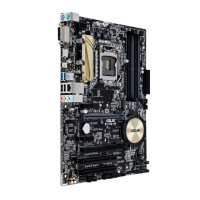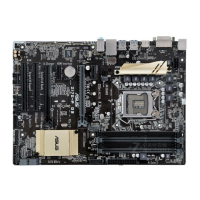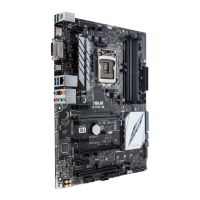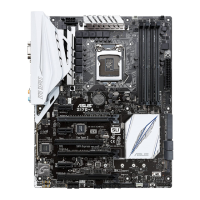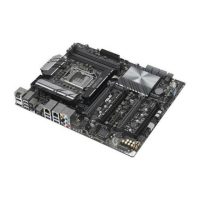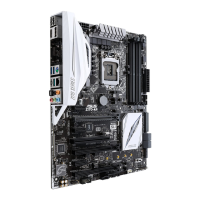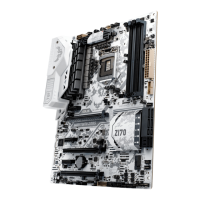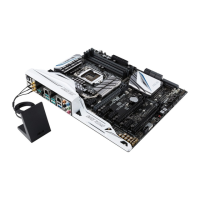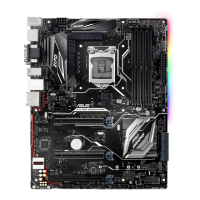1-8
Chapter 1: Product Introduction
Chapter 1
YoumayinstallvaryingmemorysizesinChannelAandChannelB.Thesystem
mapsthetotalsizeofthelower-sizedchannelforthedual-channelconguration.Any
excess memory from the higher-sized channel is then mapped for single-channel
operation.
AccordingtoIntel
®
CPU spec, DIMM voltage below 1.65 V is recommended to protect
the CPU.
Duetothememoryaddresslimitationon32-bitWindows
®
OS, when you install 4GB
or more memory on the motherboard, the actual usable memory for the OS can be
about 3GB or less. For effective use of memory, we recommend that you do any of the
following:
a) Use a maximum of 3GB system memory if you are using a 32-bit Windows
®
OS.
b) Install a 64-bit Windows
®
OS when you want to install 4 GB or more on the
motherboard.
c) For more details, refer to the Microsoft
®
support site at http://support.microsoft.
com/kb/929605/en-us.
ThismotherboarddoesnotsupportDIMMsmadeupof512Mb(64MB)chipsorless
(Memory chip capacity counts in Megabit, 8 Megabit/Mb = 1 Megabyte/MB).
ThedefaultmemoryoperationfrequencyisdependentonitsSerialPresenceDetect
(SPD), which is the standard way of accessing information from a memory module.
Under the default state, some memory modules for overclocking may operate at a
lower frequency than the vendor-marked value. To operate at the vendor-marked
or at a higher frequency, refer to section 3.5 Ai Tweaker menu for manual memory
frequency adjustment.
Forsystemstability,useamoreefcientmemorycoolingsystemtosupportafull
memory load (4 DIMMs) or overclocking condition.
AlwaysinstalltheDIMMSwiththesameCASLatency.Foranoptimumcompatibility,
we recommend that you install memory modules of the same version or data code
(D/C) from the same vendor. Check with the vendor to get the correct memory
modules.
WhenrunningXMPatDDR43200MHzorhigher,thesystemsstabilitydependson
the CPU’s capabilities.
Memory configurations
Youmayinstall2GB,4GB,8GB,and16GBunbufferedandnon-ECCDDR4DIMMsinto
the DIMM sockets.
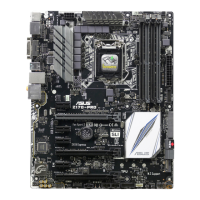
